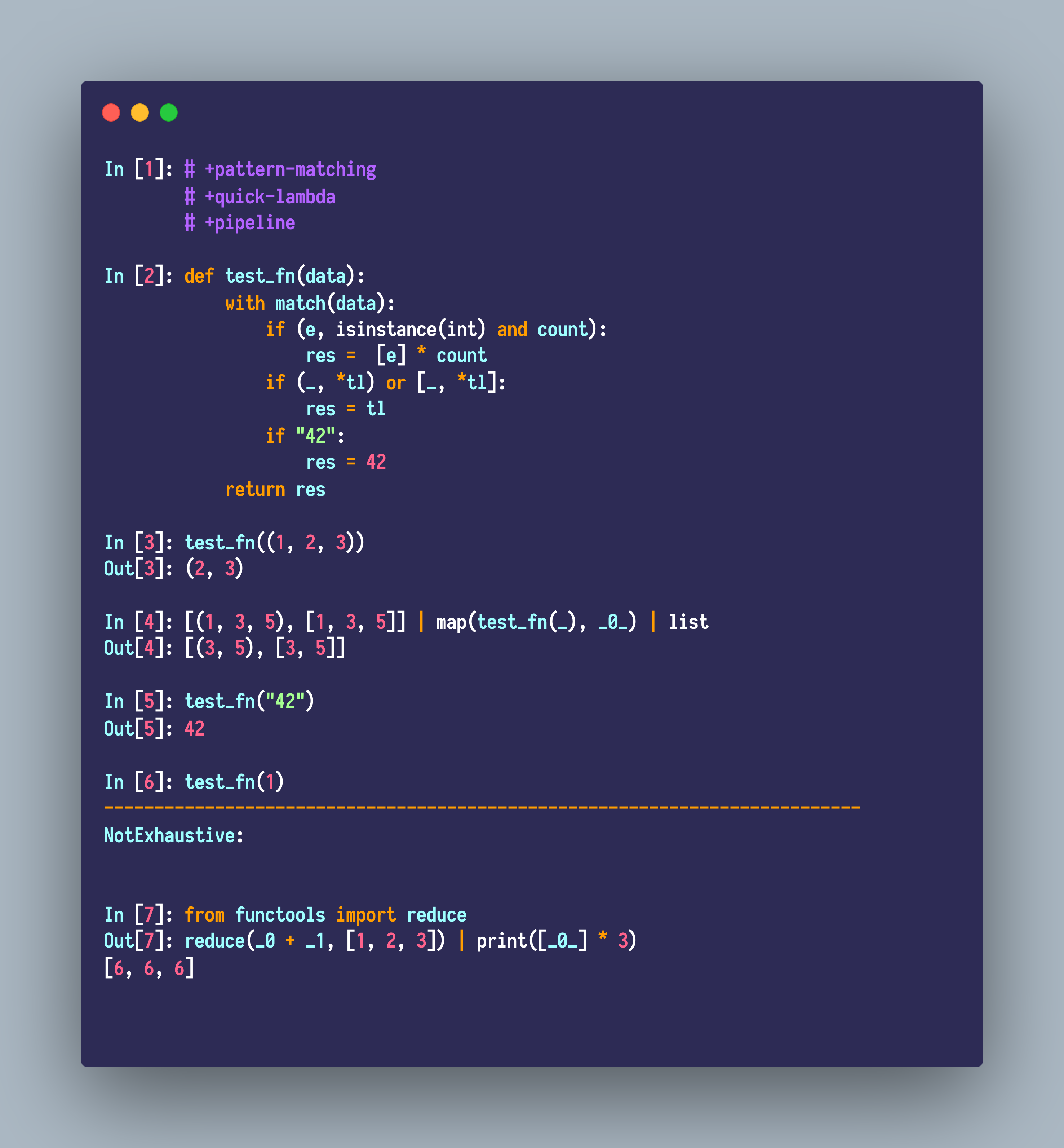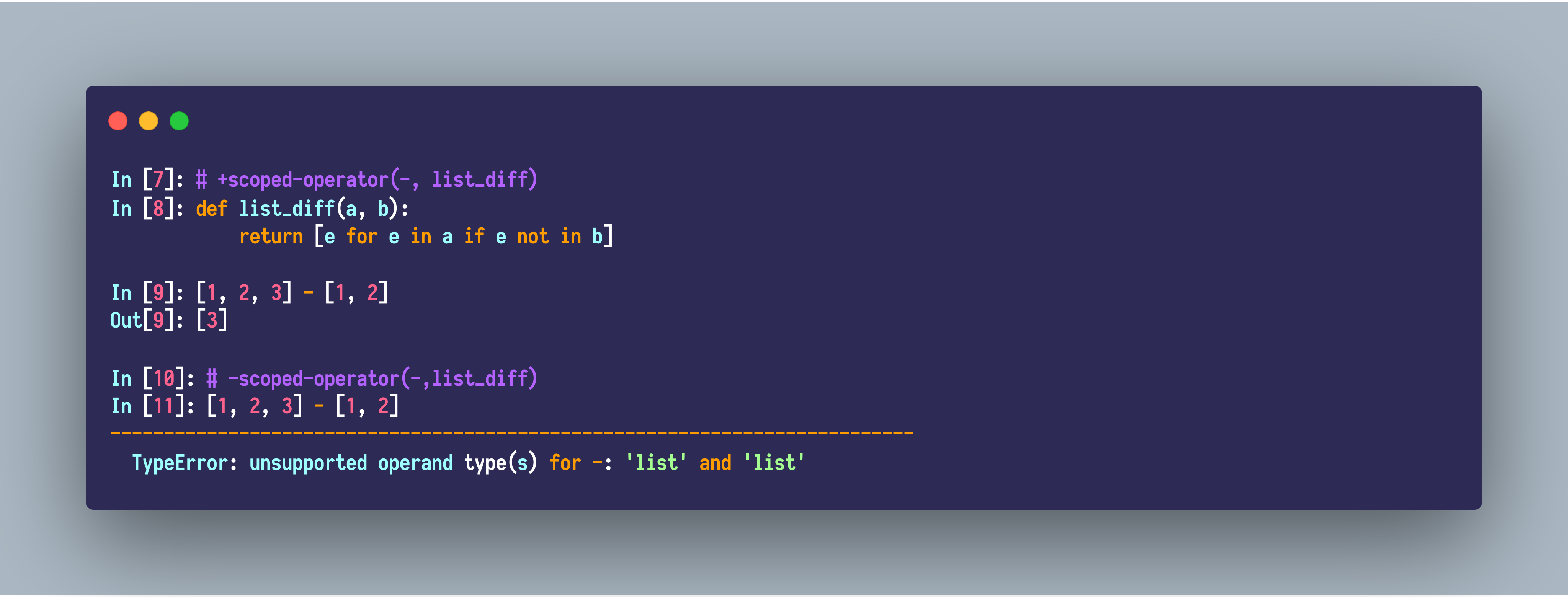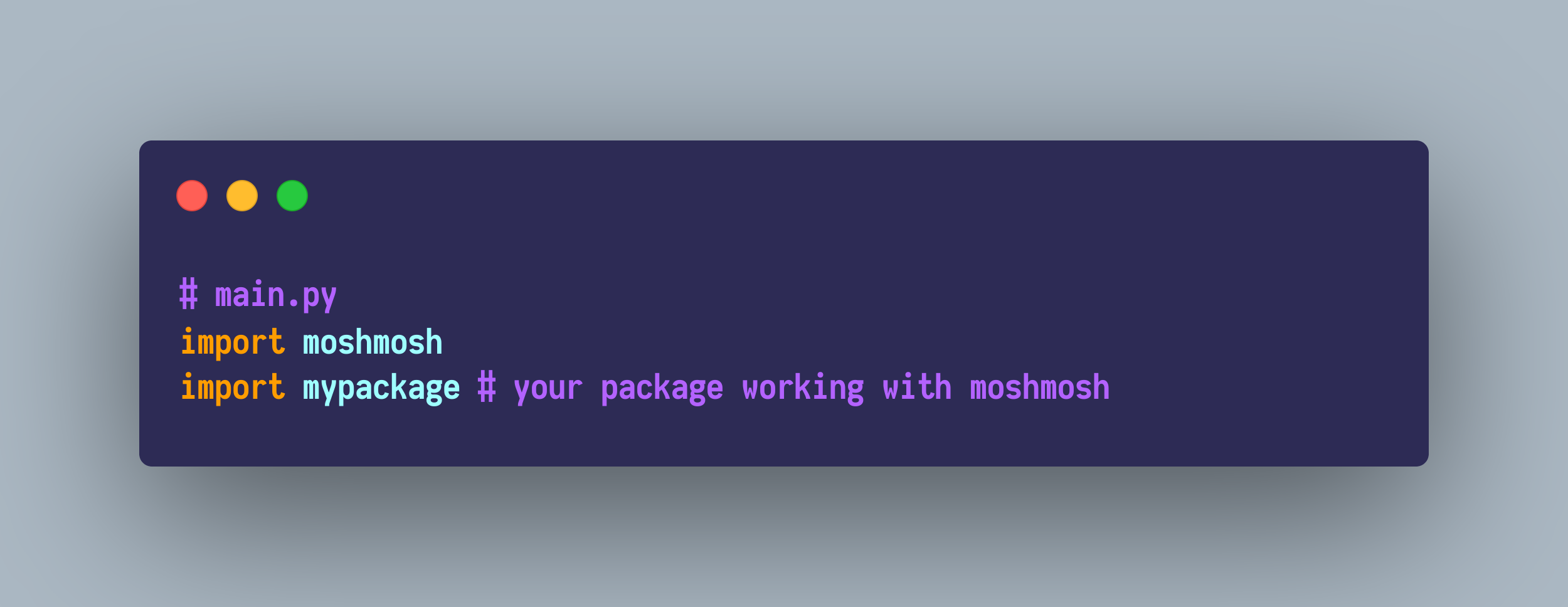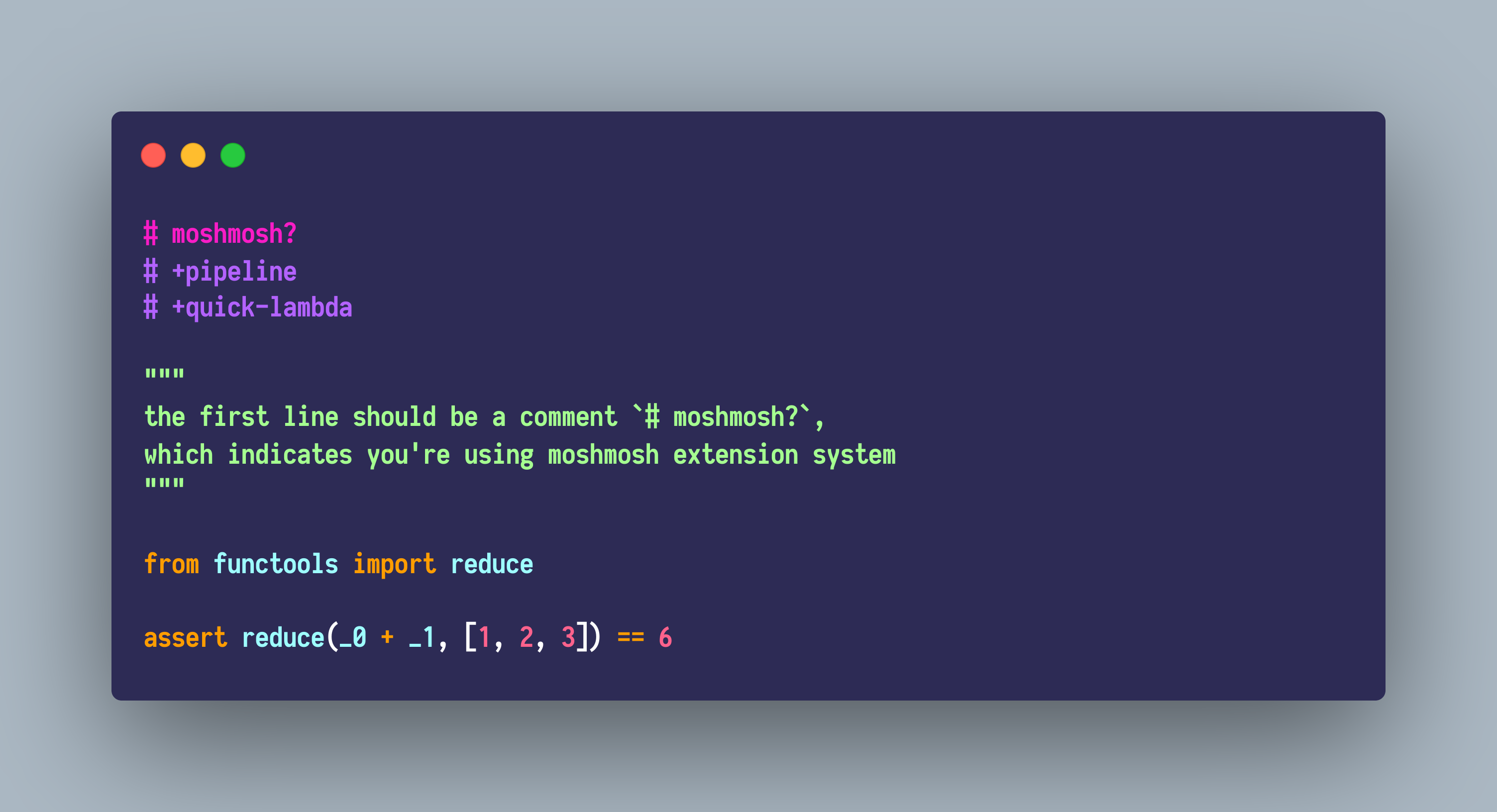advanced syntax&semantics extension system for Python
Project description
Moshmosh
An advanced syntax extension system implemented in pure python.
pip install moshmosh-base
Preview
Working with IPython
You should copy moshmosh_ipy.py
to $USER/.ipython/profile_default/startup/.
If this directory does not exist, use command ipython profile create to instantiate.
Some examples about pattern matching, pipelines and quick lambdas:
Some examples about the scoped operators:
Working with regular Python files
Import moshmosh in your main module:
Then, in mypackage.py, start coding with a pragma comment # moshmosh?, then you can use moshmosh extension system.
Case Study : Pattern Matching
The matching protocol which stems from Python-ideas mailing list is introduced in, which means you can define your own patterns conveniently. The link is here.
# moshmosh?
# +pattern-matching
class GreaterThan:
def __init__(self, v):
self.v = v
def __match__(self, cnt: int, to_match):
if isinstance(to_match, int) and cnt is 0 and to_match > self.v:
return () # matched
# 'return None' indicates 'unmatched'
with match(114, 514):
if (GreaterThan(42)() and a, b):
print(b, a)
# 514 114
Note that the matching clauses should be exhaustive,
otherwise, a moshmosh.extensions.pattern_matching.runtime.NotExhaustive
might get raised.
The supported Patterns are listed here, which is of course much more powerful than most programming languages.
- And pattern:
pat1 and pat2 and pat3 ... - Or pattern:
pat1 or pat2 or pat3... - Pin pattern:
pin(value), this is quite useful. See Elixir Pin Operator - Literal pattern:
1, "str", 1+2j, (1, 2) - As pattern:
a, var - Wildcard:
_ - Nested patterns:
- Tuple:
(pat1, pat2, pat3), (pat1, *pat2, pat3) - List:
[pat1, pat2, pat3], [pat1, *pat2, pat3] - Recogniser:
Cons(pat1, pat2, pat3), note that, the functionCons.__match__(<n arg>, value_to_match)is exact the protocol.
- Tuple:
The pattern matching should be more efficient than those hand-written codes without ugly optimizations.
Besides, Moshmosh's pattern matching is orders of magnitude faster than any other alternatives.
Case Study : Template-Python
This is relatively a simple quasiquote implementation, inspired by MetaOCaml. It does not support manual splices or nested quotations, but the function arguments are automatically spliced.
# moshmosh?
# +template-python
@quote
def f(x):
x + 1
x = y + 1
from moshmosh.ast_compat import ast
from astpretty import pprint
stmts = f(ast.Name("a"))
pprint(ast.fix_missing_locations(stmts[0]))
pprint(ast.fix_missing_locations(stmts[1]))
# =>
Expr(
lineno=7,
col_offset=4,
value=BinOp(
lineno=7,
col_offset=4,
left=Name(lineno=7, col_offset=4, id='a', ctx=Load()),
op=Add(),
right=Num(lineno=7, col_offset=8, n=1),
),
)
Assign(
lineno=8,
col_offset=4,
targets=[Name(lineno=8, col_offset=4, id='a', ctx=Store())],
value=BinOp(
lineno=8,
col_offset=8,
left=Name(lineno=8, col_offset=8, id='y', ctx=Load()),
op=Add(),
right=Num(lineno=8, col_offset=12, n=1),
),
)
Acknowledgements
- future-fstrings
- Pattern matching in Python
- older implementations
- search "pattern matching" at Python-ideas.
Project details
Download files
Download the file for your platform. If you're not sure which to choose, learn more about installing packages.
Source Distribution
File details
Details for the file moshmosh-base-0.3.tar.gz.
File metadata
- Download URL: moshmosh-base-0.3.tar.gz
- Upload date:
- Size: 24.4 kB
- Tags: Source
- Uploaded using Trusted Publishing? No
- Uploaded via: twine/1.13.0 pkginfo/1.5.0.1 requests/2.22.0 setuptools/41.2.0 requests-toolbelt/0.9.1 tqdm/4.32.1 CPython/3.7.3
File hashes
| Algorithm | Hash digest | |
|---|---|---|
| SHA256 | 27e14ec3c8006da8f05ca8ed10af4c2cb4ed88503b47522e11b9f3bfdbfa2982 |
|
| MD5 | 2a6707fc848dc4ea9b056f609ad9ff08 |
|
| BLAKE2b-256 | a6d36ac448e913df99a649ce294c5919a3c9093d9c32922bbe7f3e4a23634399 |


















